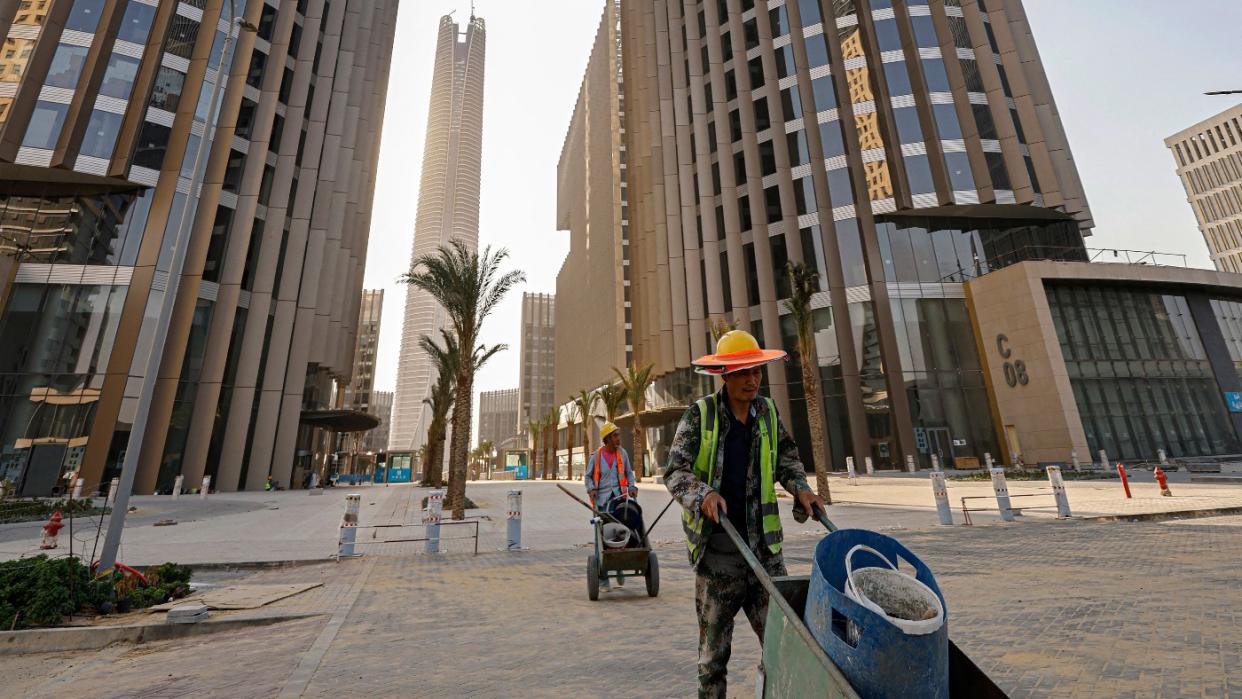Is Egypt's new capital just a 'massive city for the rich'?

- Oops!Something went wrong.Please try again later.
A controversial new Egyptian capital city is being built 30 miles east of Cairo at the expense of $45bn.
"Sprawled" across a patch of desert four times the size of Washington, DC, the "showy new capital" is "imperial in scale and style", embodying the "grandiose ambitions" of President Abdel Fattah el-Sisi, said the New York Times.
Construction of the "New Administrative Capital" has "well overshot" its original first-phase completion date of 2019-2020, said The Times. But work on the project continues, as does the chorus of hullabaloo it has sparked.
'Modernist' metropolis
For seven decades, the military has ruled Egypt from buildings designed during the "semi-colonial, semi-liberal era of the country's last monarchs", said the paper. But the architecture of the new city is "modernist" and "more in keeping, some say, with the authoritarian nature of military rule".
The new capital will be built in stages across the space of 170,000 feddans (270 square miles). It is based around a financial district where international banks and businesses will have their global headquarters. The city already boasts the tallest tower in Africa and the biggest cathedral in the Middle East.
"Slowly but surely", life is "beginning to trickle" into the city, said CNN. More than 1,500 families have moved in, according to project manager Khaled Abbas, and by the end of 2024, he expects this number to have risen to 10,000.
Eventually, "the whole country will be managed from within the new capital", Abbas added, but not everyone is convinced.
'Massive city for the rich'
There has been "little public fanfare" over the new city, said The Times, as the move to the new capital "coincides with a serious economic crisis" and a fall in the value of the Egyptian pound, leaving many questioning the project's cost.
Critics are "concerned about the expense" as the country "goes through a period of economic downturn" and deals with increased pressures from the war in Gaza, said CNN.
When Egypt opened a "record-breaking mosque" it was "widely criticised for the costs involved", said the BBC. The mosque and accompanying centre covers more than 19,000 sq m and cost 800 million Egyptian pounds (£20.7m) to build.
Writing on Facebook, one critic said the mosque had "the tallest pulpit" and "the heaviest chandelier" but people in Egypt "can't find anything to eat".
Others argue that a "key motivation behind the new city" is to "allow the government to keep its distance from large protests", like those that happened in 2011 around Cairo's Tahrir Square, said CNN.
Maged Mandour, an Egyptian political analyst, told the New York Times that President Abdel Fattah El-Sisi was "borrowing money from abroad to build a massive city for the rich" and that the poor and middle class of Egypt were paying the price in higher taxes.
Speaking to The Times, he said that it is a capital "for the military and its support base, but it is not for the poor, it’s not for the middle class". He added that the "regime's goal" is "very clear", it is the "centralisation and concentration of economic power in the hands of the military", and the capital is "just the clearest example of that".
Even some of the government workers moved out of Cairo's "crushing traffic and pollution" to new offices are complaining, added the paper, saying it takes them up to two hours to commute every morning.

